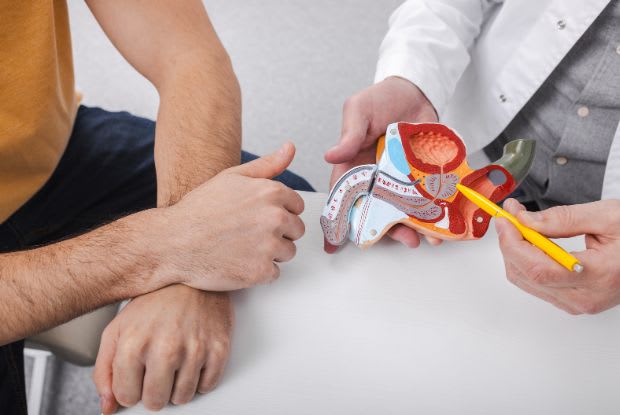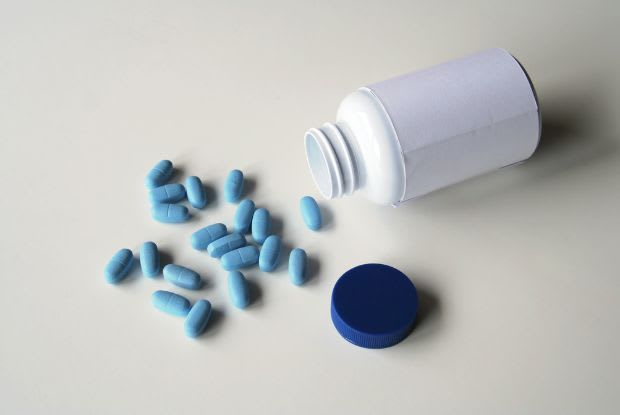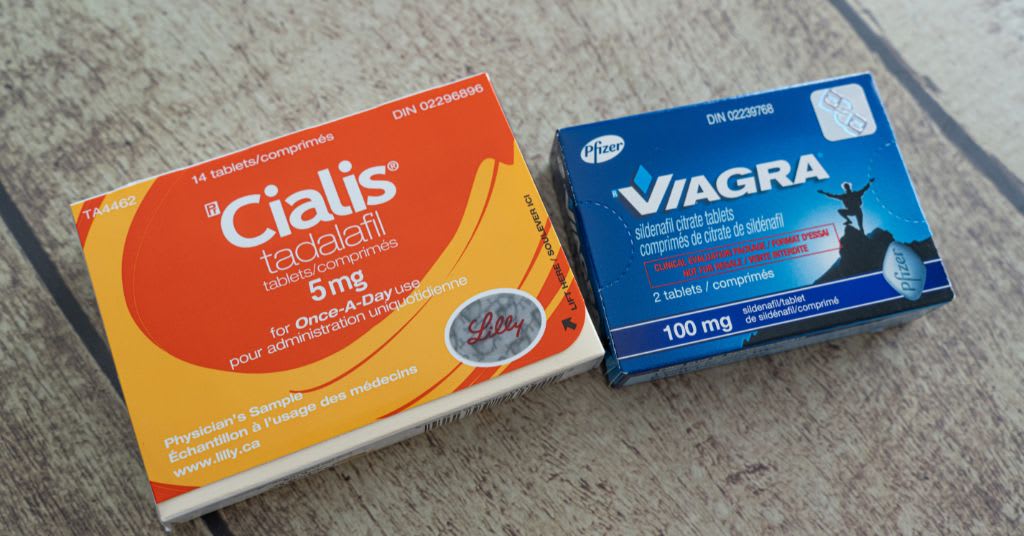For years, erectile dysfunction (ED) was seen as a problem that mostly affected older men. But that idea doesn’t hold up anymore. ED in young men is becoming more prevalent, and it’s not always just about stress or performance anxiety. Research shows that as many as one in four men seeking medical help for ED are under 40, and many cases have physical causes linked to blood flow, hormones, or lifestyle factors. 1
In this article, we’ll take a closer look at why ED in young men is becoming more common. We’ll explore what causes ED in young men, how physical and psychological factors overlap, and why erectile dysfunction under 40 can sometimes be an early sign of broader health concerns. We’ll also answer, “Is ED common in young men today?” and how doctors diagnose and treat the condition.
Understanding the Basics
Before diving into why ED in young men is increasing, it helps to understand what it actually is. Erectile dysfunction means having a consistent or recurring inability to get or keep an erection firm enough for sexual activity. It can be temporary, but if it persists, it’s usually a sign that something (physical, psychological, or both) is off balance. 2
Historically, erectile dysfunction under 40 was seen as mainly psychological, often blamed on stress, anxiety, or relationship issues. That belief shaped how doctors approached treatment, which was mainly through counseling rather than physical exams or lab work. 2
But newer research has changed that thinking. Today, we know that the causes of erectile dysfunction under 40 are versatile. Many cases have organic (physical) causes, including blood vessel problems, hormonal imbalances, or nerve issues. This shift in understanding is important when asking what causes ED in young men and how to best treat it. 2
Is ED Common in Young Men?
So, is ED common in young men? Surprisingly, yes, and it’s getting more common. Global studies have found that 8 to 11% of men in their 20s and 30s report erectile difficulties. 1
Why the jump? It’s partly because more men are willing to seek help and talk about it. But that’s not the whole story. There are actual physiological and lifestyle factors fueling this increase, and they go far beyond stress. Understanding what causes ED in young men is important to addressing it effectively.
Another important question doctors often hear is “Is ED common in young men who are otherwise healthy?” The answer is yes. Even men who are fit and active can experience erection problems linked to subtle vascular changes or hormonal shifts that go unnoticed until they cause symptoms. 1
What Causes ED in Young Men?

Vascular and Metabolic Issues
Many cases of erectile dysfunction under 40 trace back to blood flow problems. Erections depend on healthy arteries and proper circulation, and when the blood vessels are damaged, the penis doesn’t get enough blood to stay firm. 1
Conditions like obesity, diabetes, and high blood pressure, which were once thought to affect mainly older men, are now appearing much earlier in life. These issues damage the blood vessels, including those in the penis. Even subtle changes in cardiovascular health can cause ED years before other symptoms appear. In fact, studies show that ED can be an early warning sign for heart disease, often showing up about three years before a cardiac event. 1
Hormonal Imbalances
Another cause of ED in young men is low testosterone. While testosterone naturally drops with age, some younger men are experiencing deficiencies linked to poor diet, sedentary habits, stress, or even environmental toxins. Low testosterone doesn’t just reduce libido; it can also affect energy, mood, and erection quality. 1
Endocrine disorders like thyroid disease or adrenal problems can also play a role. Although these are less common, screening for hormone levels can identify hidden issues early. 1
Neurological Factors
Nerve-related issues, though less frequent, are also part of the picture. Injuries from cycling, perineal trauma, or spinal cord issues can disrupt the signals needed for an erection. Even frequent long-distance biking can compress nerves and blood vessels, causing temporary or chronic erectile difficulties. 2
Psychological and Relationship Stress
Despite the growing evidence of physical causes, the mind still plays a big role. Anxiety, depression, and relationship stress are major contributors to ED in young men. One study found that 30% of young men reporting ED also had mental health challenges like depression or low self-esteem. 2
Performance anxiety, which is worrying about not being able to perform, can become a self-fulfilling prophecy. The more a man fixates on it, the more likely it is to happen. 2
Lifestyle Factors
Lifestyle choices are one of the most important explanations for why ED in young men is on the rise. Smoking, heavy drinking, and recreational drug use all affect erectile function. Add in poor diet, lack of exercise, and chronic stress, and you have a perfect storm for vascular and hormonal dysfunction. 2
Some medications, especially antidepressants, antihypertensives, and anabolic steroids, can also impair sexual performance. All of these play into “what causes ED in young men?” showing that it’s rarely one simple factor. 2
For men wondering “Is ED common in young men who live healthy lifestyles?”, the reality is that even good habits can’t always offset the effects of underlying medical conditions like hormonal imbalances, nerve injuries, or side effects from medications. That’s why open discussion and early screening are so important. 1
The Overlap Between Physical and Psychological Causes
One of the biggest findings in recent years is that ED is rarely just one thing. It’s often a mix of physical and emotional factors. For instance, a man might develop mild vascular issues that cause occasional difficulty. That one bad experience can trigger anxiety, which then worsens the problem even when the body is functioning fine.
This overlap explains why treating ED in young men isn’t as simple as prescribing medication. Effective management means addressing both the physical and psychological roots of the problem. Understanding what causes ED in young men requires recognizing how tightly these factors are connected.
Why ED Shouldn’t Be Ignored
Many men brush off erectile issues as “just stress” or “a phase,” but that can be dangerous. Doctors now recognize ED as a potential early sign of systemic disease. In younger men, it can be the first clue of diabetes, metabolic syndrome, or early-stage heart disease. 2
In one study, men under 50 with ED had an 80% higher risk of developing coronary artery disease later in life compared to those without ED. That’s why experts now view erectile dysfunction under 40 as a red flag for overall vascular health. 2
Diagnosis
Because ED in young men was historically dismissed as “all in the head,” many still don’t get a proper medical workup. But guidelines now recommend a full evaluation, including a physical exam, hormone tests, blood work, and sometimes a penile Doppler ultrasound to identify underlying causes. 2
A detailed sexual and psychosocial history also helps distinguish between psychogenic and organic ED. Sudden onset with normal morning or self-stimulated erections often points to stress or anxiety. Gradual onset with reduced morning erections may signal vascular or hormonal problems. 2 So, if you’re asking, “Is ED common in young men?” the answer isn’t just “yes,” it’s also that many cases go undiagnosed or undertreated because of outdated assumptions.
Treatment

PDE5 inhibitors like Viagra and Cialis are still the most common treatments, and they work well for many. These medications improve blood flow to the penis and are often the first-line option for treating ED symptoms in young men. 1 For convenience and privacy, prescription ED medications can be ordered online through platforms like MailMyMeds.
In addition to medication, the following changes can also help:
- Lifestyle changes: Exercise, a healthy diet, quitting smoking, and cutting back on alcohol can improve both heart and erectile health.
- Stress management: Cognitive-behavioral therapy (CBT) or sex therapy can reduce anxiety and rebuild confidence.
- Hormonal therapy: For men with low testosterone, treatment can restore libido and erectile function.
- Couples counseling: Involving partners in treatment often improves communication and intimacy.
Conclusion
If you’re wondering, “Is ED common in young men?” The answer is yes, and it’s becoming even more common. More importantly, it’s often a symptom, not just a standalone issue. Understanding what causes ED in young men means looking beyond stress and exploring potential physical conditions like cardiovascular disease, diabetes, or hormonal imbalance.
The good news is that erectile dysfunction under 40 is often treatable. Whether it’s through lifestyle changes, therapy, or medical treatment, early intervention makes a major difference. For more guidance on managing ED, symptoms to watch for, and treatment options, visit our ED blog.
The content in this article is intended for informational purposes only. This website does not provide medical advice. In all circumstances, you should always seek the advice of your physician and/or other qualified health professionals(s) for drug, medical conditions, or treatment advice. The content provided on this website is not a substitute for professional medical advice, diagnosis, or treatment.






